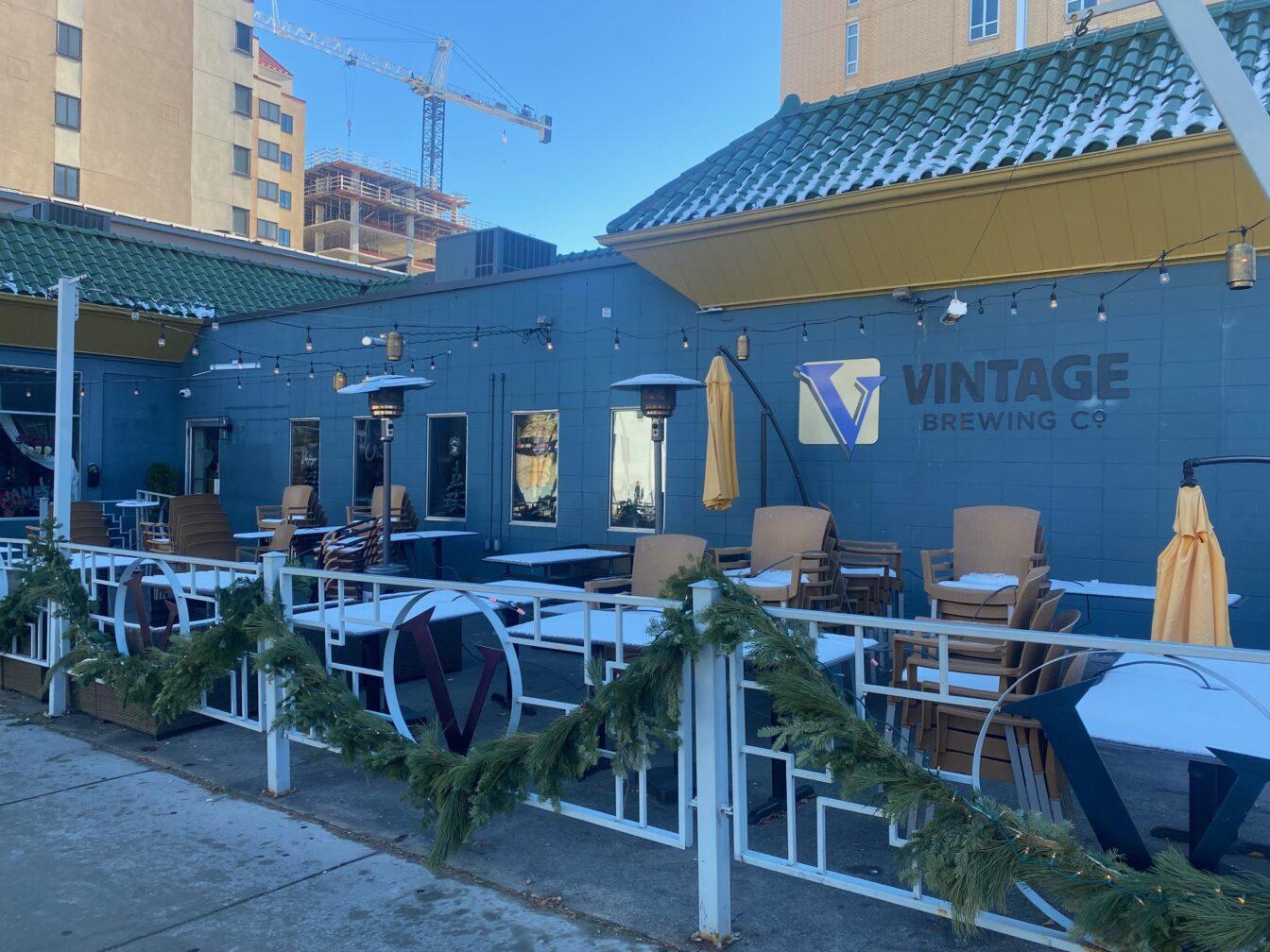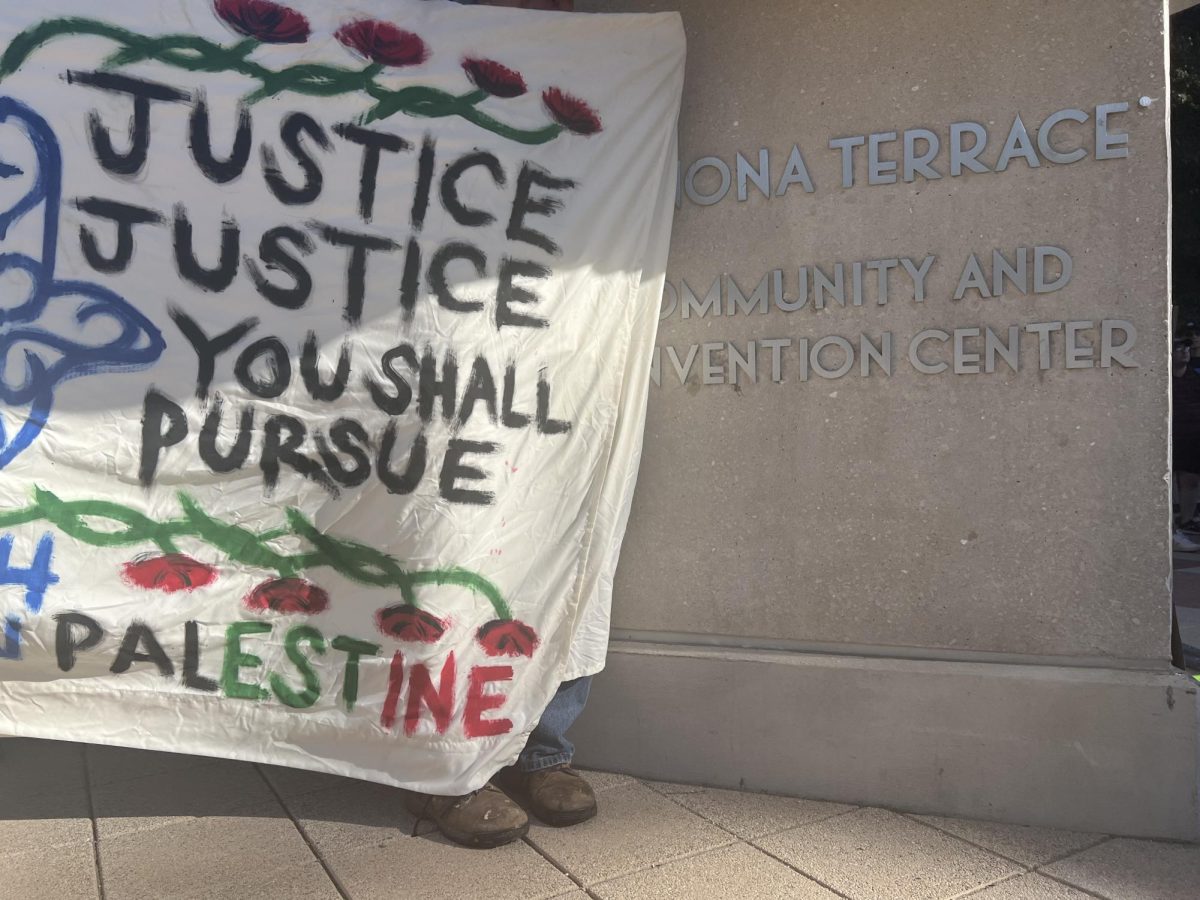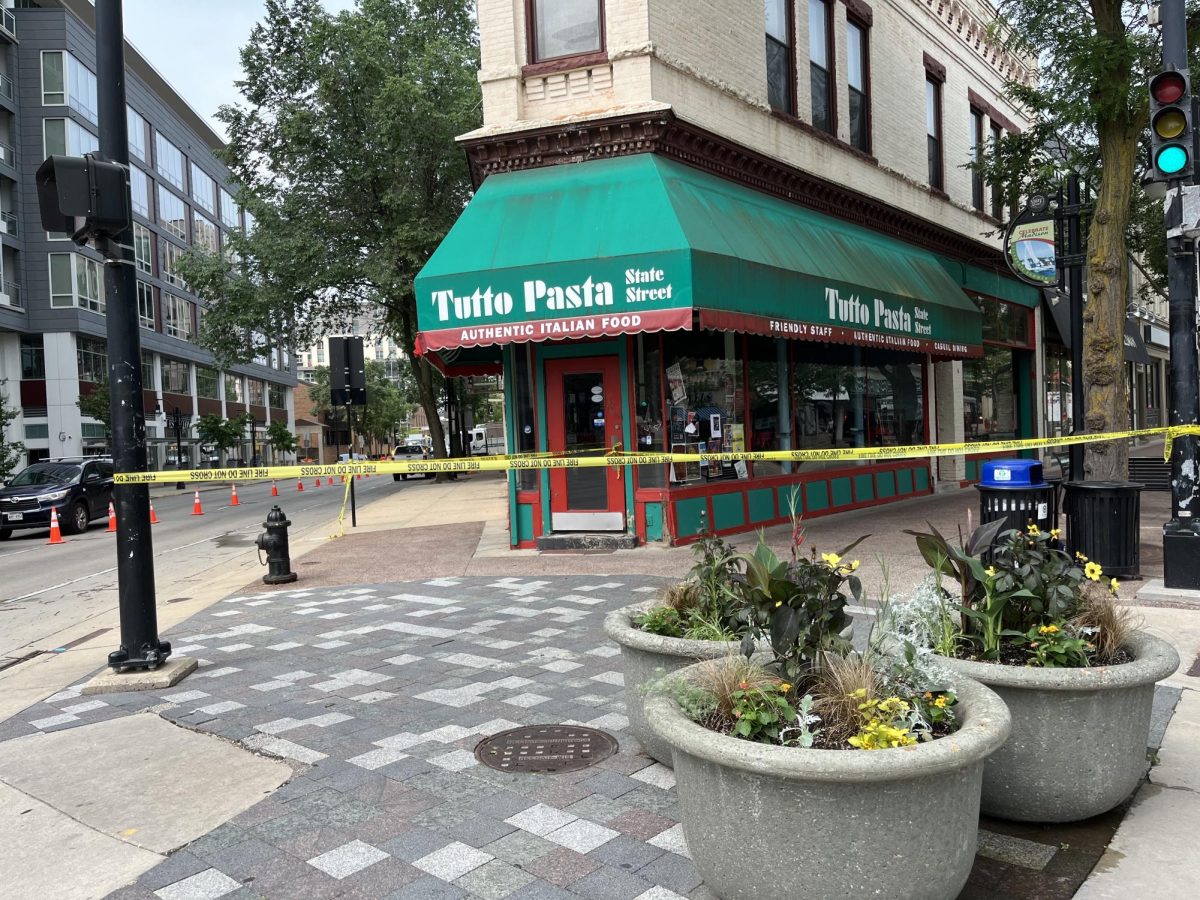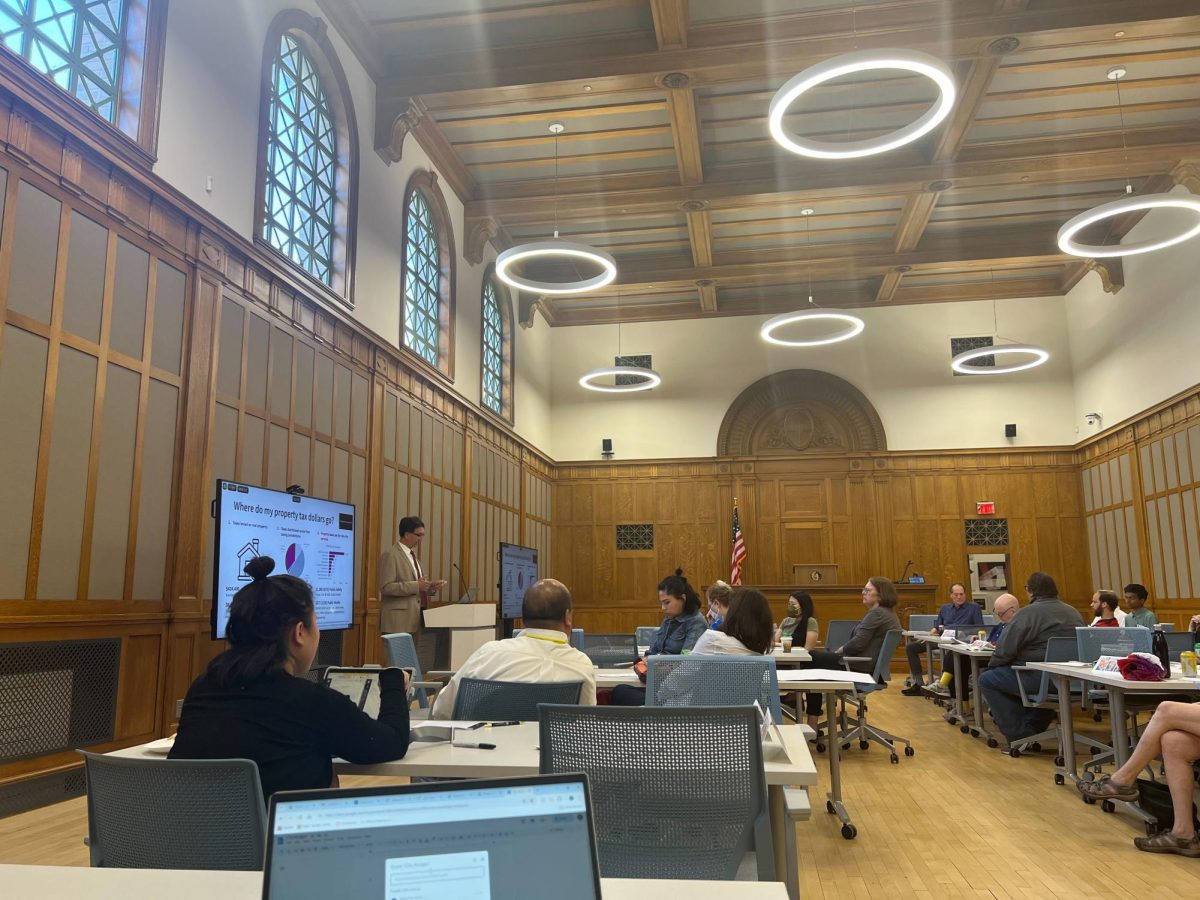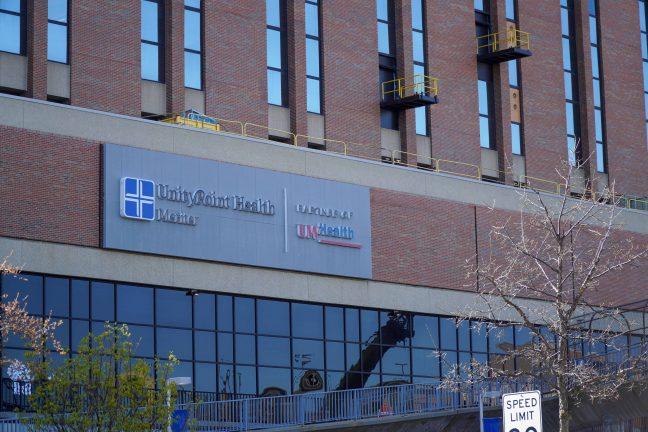The City of Madison Department of Planning, Community and Economic Development will review a demolition permit Jan. 8 for the restaurant tavern located at 529 University Ave. The Carey Group Commercial Real Estate Services, LLC submitted a proposal to demolish the building, rented for 22 years by owner of Vintage Spirits and Grill Brittany Kramer, to build student housing.
Vintage will remain open until May 2025, when construction is due to begin. Owner and founder of The Carey Group, Kevin Carey, anticipates construction taking 12-14 months, with the apartments ready for move in August 2026.
“A family owns our building and they’ve owned it for decades,” Kramer said. “It’s out of our hands, we can’t afford what the investors are paying, therefore it is a tricky predicament.”
The Kramer family was given the chance to buy the building but was outbid by developers interested in building high-density housing that is only permitted in specific areas.
Madison Metro ridership passes one million in October, reaching pre-COVID levels
The City of Madison’s downtown plan recommends the Johnson Street Bend Neighborhood be developed into mixed-use buildings and “higher density infill and redevelopment that is innovative and sustainable and complements and enhances the area in which they are proposed.”
The Goeden family, who has owned the property since the 1950s, has spoken with developers over the past decade to identify ways to reinvest in the property, property owner Mike Goeden said. Unlike other developments in downtown Madison, Goeden expressed confidence that the leaders behind these projects are from Madison and are familiar with the city’s needs.
“We want something that will work for the needs of the neighborhood,” Goeden said.
The property is one of the few lots left in the downtown area that is zoned for high-density mixed-use buildings, driving up the price of the land, professor of urban planning Kurt Paulsen said.
“[Madison has] two competing pressures moving in opposite directions,” Paulsen said. “There’s a huge demand for housing downtown. And it’s not just students — it’s retirees who want to be downtown for theater and restaurants. It’s young tech workers. Everyone wants to live in this narrow geographical campus near State Street. That makes land very expensive, and that makes it hard for small businesses to compete for the land.”
The demolition permit is a separate process from the redevelopment plans, and the new construction cannot be a part of the demolition consideration, District 2 Alder Julianna Bennett said.
Carey emphasized Vintage will stay open until the new project is approved and construction is ready to begin.
“We talked to Vintage about taking that 1500 square feet on the first floor, having really cool garage doors that would go up, and it would be kind of an open-air bar down there and then rent them the second floor so they could have the restaurant and all of that stuff,” Carey said.
Madison City Council calls for ceasefire in Gaza in unanimous vote
But due to land and construction costs, the Kramers declined. Carey expressed interest in welcoming another restaurant and working with them in the design process to develop a second-floor space suited to their needs.
“Bars and restaurants are cheaper per square foot if you can vent right through the roof,” Paulsen said. “But if you have housing or anything else above, you have to have special ventilation. It’s a trade off because you can make anything work at a price point but then the question is — how much more expensive will the drinks and food be to pay for that rent?”
The Carey Group sought out a property within the 12-story building zoning to develop high-density student housing, which is how the Vintage property was selected.
The new apartments are catered toward students who are not interested in living with upwards of 1,000 people at a luxury apartment like The James or The Hub, but still want to live downtown in a high-rise apartment, Carey said.
The city’s zoning restriction forces developers to concentrate their efforts on luxury apartment buildings in downtown Madison, Bennett said.
“We need to start looking at being able to build outside of the downtown area and for every single neighborhood to start doing their part,” Bennett said. “If we can’t accept new housing elsewhere, then that solely leaves a few block areas in downtown Madison to be developed.”
With more professionals moving to Madison, the city needs to build more housing to prevent high rents from displacing working-class people, Paulsen said. High demand for housing, not building additional housing makes prices go up, Paulsen said.
New developments tend to be “top of the market” unless a subsidy for low-income housing is provided because of the cost of designing and constructing any building, Paulsen said.
Paulsen stressed the additional challenges students face, as they usually do not qualify for affordable housing.
“The mayor’s plan for bus rapid transit is part of the solution — if you can’t build lots of housing where people want to live, you can build it a little further out.”
City of Madison seeks input for State Street pedestrian mall experiment
Transit-oriented development can help absorb the demand for downtown by allowing those who work on Madison’s isthmus to live outside of the city center, Paulsen said. The City of Madison began transitioning to a BRT this summer in preparation for a full implementation in 2024.
Students, community members, and Vintage staff have expressed their disappointment toward the demolition proposal on Instagram.
Kramer opened Vintage when she was 24, after graduating from UW. The restaurant has become an iconic place for the student college experience, she said. Kramer expressed frustration with the development, as she believes developments like these limit the opportunities for small businesses.
“We have been down there a very long time, it’s been a lot of transitions with the city,” Kramer said. “Obviously growth has to happen, and with growth, more living environments need to happen. But I just think their growth is happening so quickly that we’re losing sight of keeping Madison at its core very local and honoring small businesses.”
Editor’s Note: This article has been updated to reflect the fact that the demolition hearing was moved from Dec. 11 to Jan. 8 at the request of Kevin Carey of Carey Group Commercial Real Estate Services, LLC. At the time of this update, Carey had not responded for comment about the delayed hearing date.








